
The Best Creative Writing MFA Programs in the U.S.
Summary
This article offers a comprehensive guide to the top Creative Writing Master of Fine Arts (MFA) programs in the U.S., tailored for aspiring writers aiming to refine their craft in poetry, fiction, or creative nonfiction. Highlighting the importance of faculty expertise, alumni success, curriculum diversity, financial support, and location, it delves into what makes each program stand out. Featured programs include the Iowa Writers’ Workshop, known for its prestigious alumni and faculty; the University of Michigan’s Helen Zell Writers’ Program, offering generous funding; and the Columbia University School of the Arts, with its unparalleled access to the New York literary scene. These programs are evaluated on their ability to provide a nurturing environment for writers to develop their voice and style, alongside offering practical advice on navigating the literary world.
Reflection Questions
- Many MFA programs are intense and require a significant time commitment. How do you plan to balance writing, workshops, and any teaching responsibilities with your personal life and possibly other professional obligations?
- Considering the diversity of faculty and the curriculum, how important is representation to you in an MFA program? How do you hope to see your own experiences and perspectives reflected in the program?
- Receiving and giving feedback is a cornerstone of MFA programs. How do you approach critique, both in giving it to others and receiving it about your work? How do you plan to use critique to further your development as a writer?
Journal Prompt
Think about the stories of women that have influenced you the most. How do these narratives shape your own writing? Write about how you plan to contribute to the landscape of female narratives within the literary world through your work.
Creative Writing Master of Fine Arts (MFA) programs play an important part in shaping the careers of aspiring writers, offering them a structured environment to hone their craft. The evaluation of these programs hinges on several key factors: the expertise and reputation of the faculty, the success and influence of alumni, the rigor and diversity of the curriculum, the availability of financial support, and the geographical location which can influence literary connections and opportunities. In this article, we will provide an in-depth analysis of the leading Creative Writing MFA programs in the United States, scrutinizing each of these criteria to guide prospective students in making informed decisions about their educational and professional trajectories in the field of creative writing. Whether you seek a poetry MFA program or one in creative nonfiction, read on to learn about the best MFA programs for creative writing students below.
The Role of MFA Programs in Creative Writing

MFA programs in Creative Writing fundamentally contribute to a writer’s development by providing a structured and rigorous academic environment. These programs are designed to immerse students in a world of literary critique and craft, offering dedicated time for writing, reflection, and improvement.
Through writing classes, workshops, seminars, and individual mentoring, students gain critical feedback on their work, learn to refine their voice, and explore various genres and techniques. This intensive focus on writing, combined with exposure to a breadth of literary styles and theories, equips aspiring writers with the skills and knowledge necessary to advance their craft. It will also encourage students to develop a unique literary style all their own.
Community and Networking Opportunities in MFA Programs
MFA programs offer significant community and networking opportunities, serving as a nexus for like-minded individuals passionate about writing. These programs foster a sense of community through collaborative workshops, readings, and group discussions, creating an environment conducive to sharing ideas and experiences.
Networking opportunities with established writers, publishers, and literary agents are often facilitated by the program, providing students with valuable industry connections. Alumni networks further extend these opportunities, allowing graduates to remain connected to a supportive literary community that can play a crucial role in their professional development and success in the literary world.
What is the Coursework Like?
The coursework for a Master of Fine Arts (MFA) in Creative Writing is designed to provide students with a comprehensive and immersive experience in writing, critical analysis, and literary theory. While specific course offerings and structures can vary by program, there are several common elements found across most MFA programs that graduate students can expect. These include the following.
Writing Workshops: These are the cornerstone of most MFA programs. Workshops focus on the student’s own writing, providing a space for peer review and critical feedback. Students typically submit their work—be it poetry, fiction, nonfiction, or another genre—and the class discusses each piece in detail, offering constructive critiques. These workshops are often led by experienced visiting writers and faculty members who can help guide the writing process as you pursue your graduate degree.
Literature Classes: Literature courses are a staple of many MFA programs. They offer a study of literary works from various genres, periods, and cultures. These courses are designed to give students a deeper understanding of literary traditions, styles, and techniques, which can then be applied to their own writing.
Craft Classes: Focusing on specific aspects of writing, such as narrative structure, character development, or dialogue, craft classes help students refine their skills in particular areas of writing. These might also include studies in genre-specific writing, like mystery, fantasy, or memoir.
Electives: Many programs offer elective courses that allow students to explore areas outside of their primary genre or delve into specialized topics like screenwriting, children’s literature, or digital storytelling.
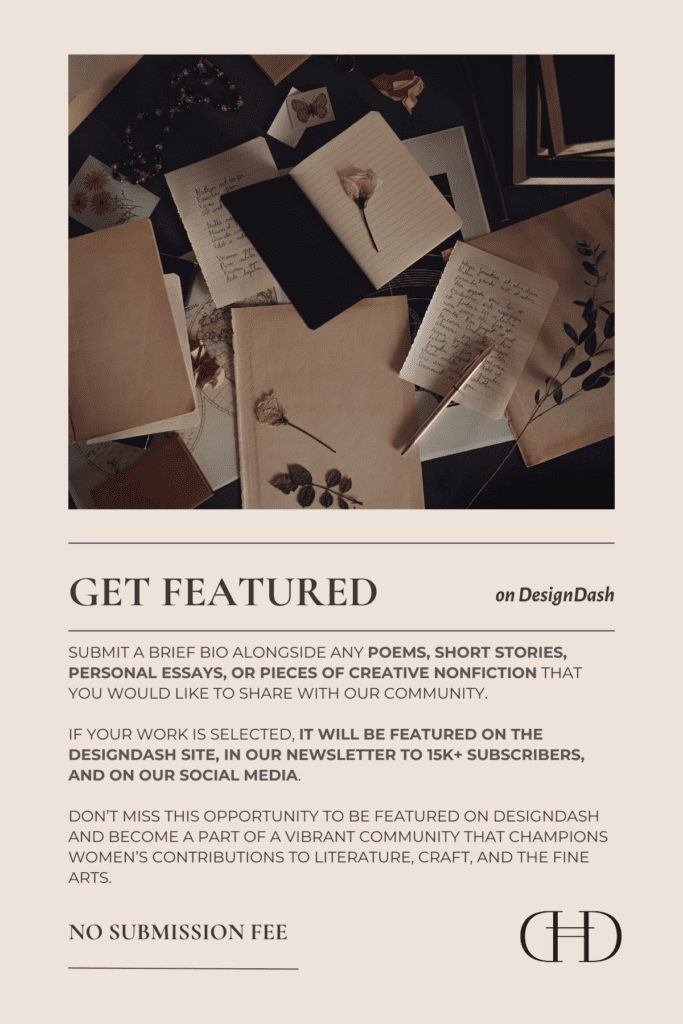
are you a writer?
Thesis or Capstone Project: Most MFA programs culminate in a thesis or capstone project. This typically involves creating a substantial body of work, such as a novel, a collection of short stories or poems, or a nonfiction manuscript. The project is usually completed under the guidance of a faculty advisor.
Professional Development: Courses or workshops focused on the business side of writing, such as publishing, literary agent representation, and marketing, are also common. These are designed to prepare students for the practical aspects of a writing career.
Guest Lectures and Readings: Many programs bring in award winning writers, editors, and literary agents to speak with students, providing insights into the literary world and opportunities for networking.
Teaching Opportunities: Some programs offer teaching assistantships, where MFA students teach undergraduate writing courses. A graduate teaching assistantship provides valuable teaching experience and often helps with funding. Low residency programs in particular offer these opportunities.
Top Creative Writing MFA Programs in the U.S.

The United States boasts a range of top-tier Creative Writing MFA programs, each with its unique strengths and focus. Many are low-residency MFA programs with both incredible tenured professors and amazing visiting faculty. Let’s take a look at a few creative writing programs.
The Iowa Writers’ Workshop at the University of Iowa, a pioneer in the field, is known for its tradition of producing distinguished writers. Columbia University’s program in New York City stands out for its comprehensive approach and proximity to the publishing world.
The Helen Zell Writers’ Program at the University of Michigan offers an intimate setting with a strong emphasis on community and craft. The Michener Center for Writers at the University of Texas at Austin distinguishes itself with its interdisciplinary approach and generous funding.
Other notable programs include those at New York University, Brown University, the University of Virginia, and Johns Hopkins University, each offering a blend of rigorous coursework, accomplished faculty, and a supportive writing community. Let’s delve deeper into these and a few more of the top graduate creative writing programs below. Bear in mind that the following MFA creative writing programs are not listed in any particular order.
Iowa Writers’ Workshop, University of Iowa
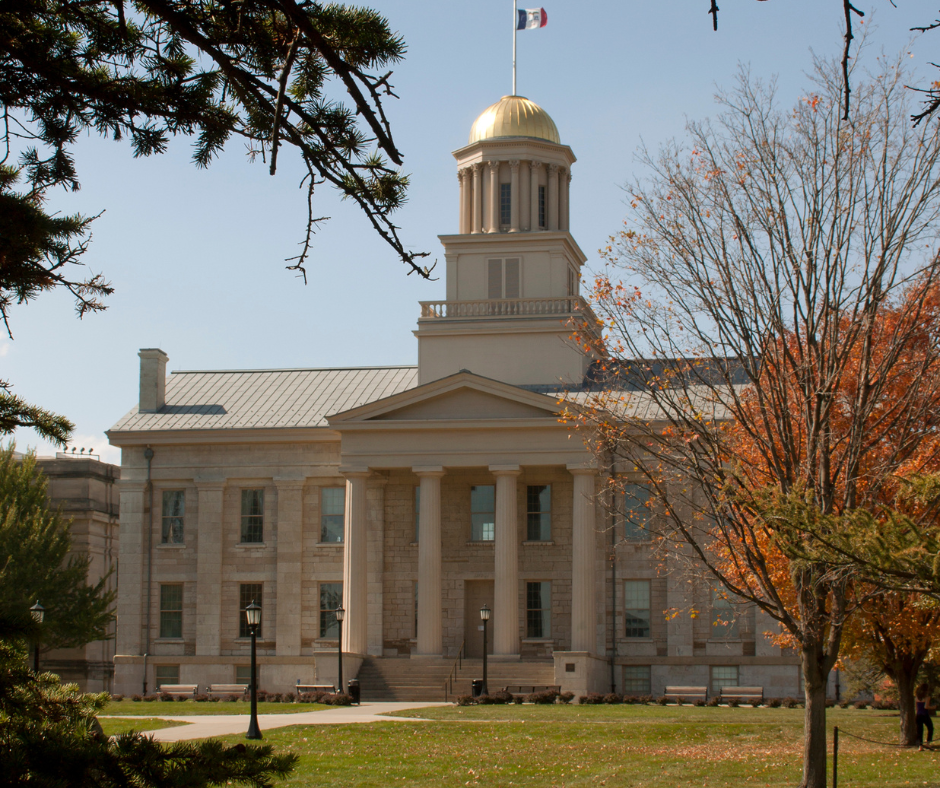
The Iowa Writers’ Workshop at the University of Iowa stands as one of the most prestigious Creative Writing MFA programs in the United States. Renowned for its history of nurturing successful writers, the program has been a seminal influence in the literary world. Incoming MFA students will walk in the footsteps of incredible writers like John Irving and Flannery O’Connor.
The workshop model of teaching, which fosters peer review and close interaction with faculty, has been instrumental in shaping the skills of budding writers. The program’s alumni include numerous Pulitzer Prize winners and acclaimed authors, underlining its significant impact on the literary landscape.
Iowa Writers’ Workshop Alumni
The Iowa Writers’ Workshop at the University of Iowa is renowned for its impressive roster of alumni, many of whom have achieved significant acclaim in the literary world. Some well-known alumni include the following.
Flannery O’Connor: An American novelist and short story writer known for her sardonic, Southern Gothic style and often grotesque characters.
John Irving: A bestselling novelist and screenwriter, famous for works such as “The World According to Garp” and “A Prayer for Owen Meany.”
Jane Smiley: A Pulitzer Prize-winning author, recognized for her novel “A Thousand Acres,” which is a modernized retelling of Shakespeare’s “King Lear.”
Michael Cunningham: Known for his novel “The Hours,” which won the Pulitzer Prize for Fiction and the PEN/Faulkner Award.
T.C. Boyle: A prolific writer known for his novels and short stories that often reflect on contemporary society and the human condition.
Marilynne Robinson: Celebrated for her novel “Gilead,” which won the Pulitzer Prize for Fiction; she is also known for her essays and teaching at the Workshop.
Columbia University School of the Arts
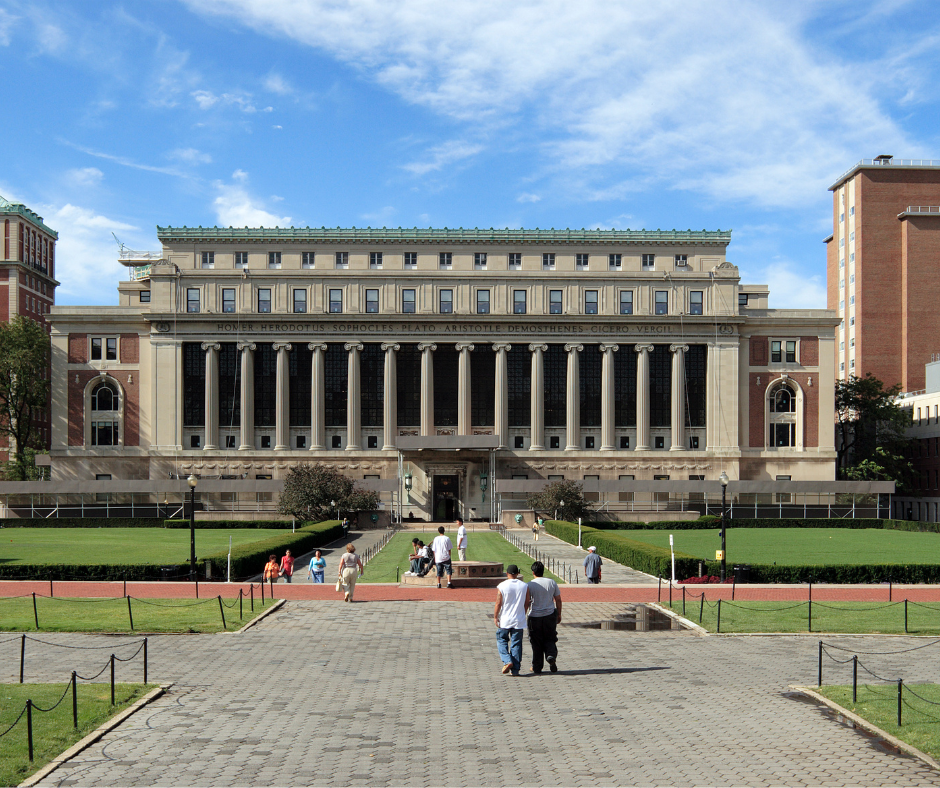
Columbia University’s School of the Arts offers a Creative Writing MFA program known for its rigorous approach and outstanding faculty. Located in the heart of New York City, the program provides students with an immersive experience in one of the world’s most dynamic literary communities.
The curriculum emphasizes not only creative writing skills but also a critical understanding of literary theory and history, supported by a faculty comprising some of the most distinguished writers and intellectuals in the field.
University of Michigan, Helen Zell Writers’ Program
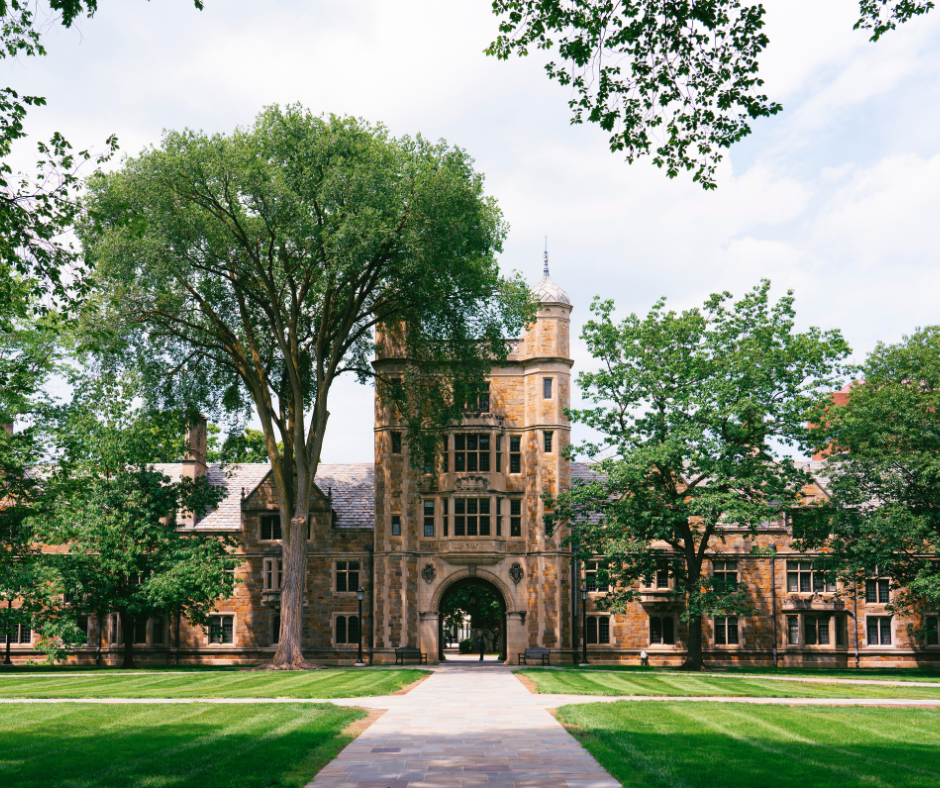
The University of Michigan’s Helen Zell Writers’ Program is celebrated for its unique blend of academic rigor and creative flexibility. This program distinguishes itself by offering a supportive and collaborative environment where students can explore a wide range of writing styles and genres.
The faculty, composed of esteemed writers, provides personalized guidance, ensuring a rich learning experience that fosters both technical skill and artistic expression.
Design Your Dream Firm in Just 5 Days
JOIN THE CHAOS TO CLARITY CHALLENGE!

New York University
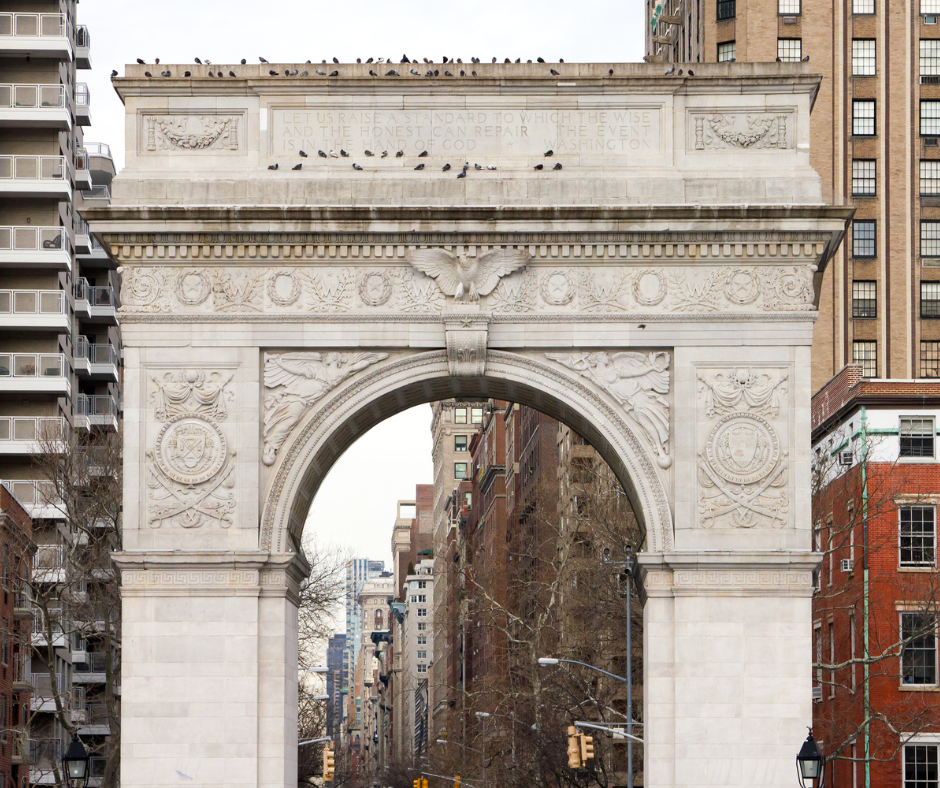
Located in the vibrant literary heart of New York, New York University’s creative writing program is notable for its distinguished faculty and diverse student body. The program offers unparalleled access to the city’s rich cultural life, including readings, workshops, and networking events with industry professionals.
This urban setting, combined with the program’s strong focus on mentorship and development, creates an ideal environment for MFA students to flourish.
The Michener Center for Writers, University of Texas at Austin
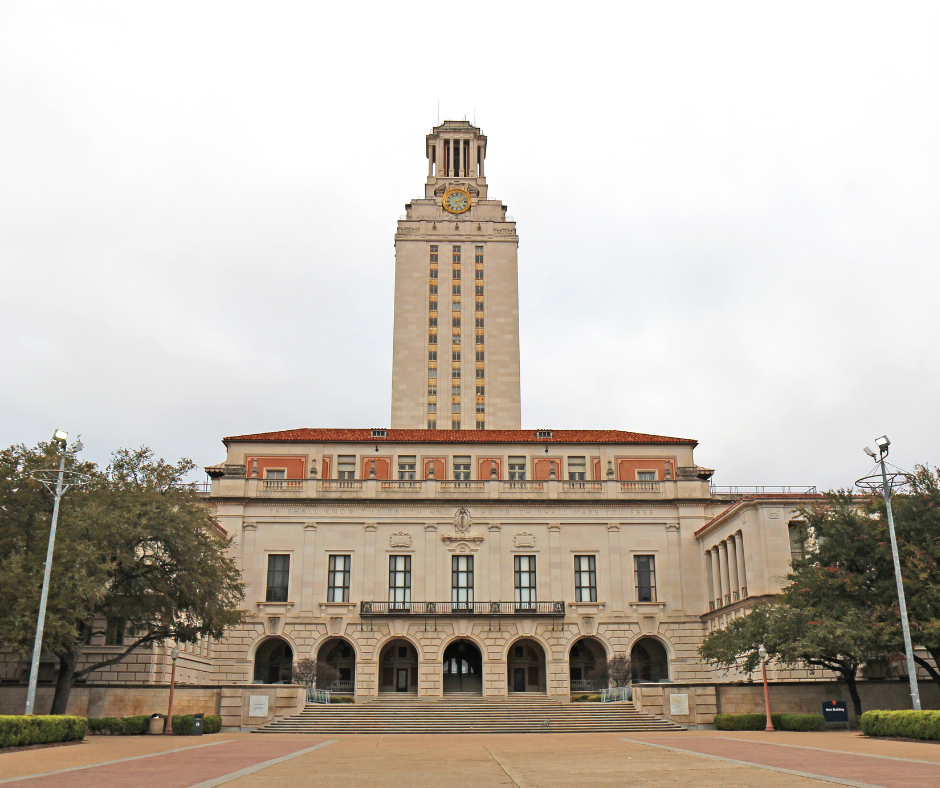
The Michener Center for Writers at the University of Texas at Austin is known for its interdisciplinary approach and generous funding opportunities for students. The program stands out for its emphasis on cross-genre exploration, allowing students to delve into various forms of writing. With its robust funding, the center attracts a diverse group of talented writers, creating a dynamic and supportive community.
Brown University
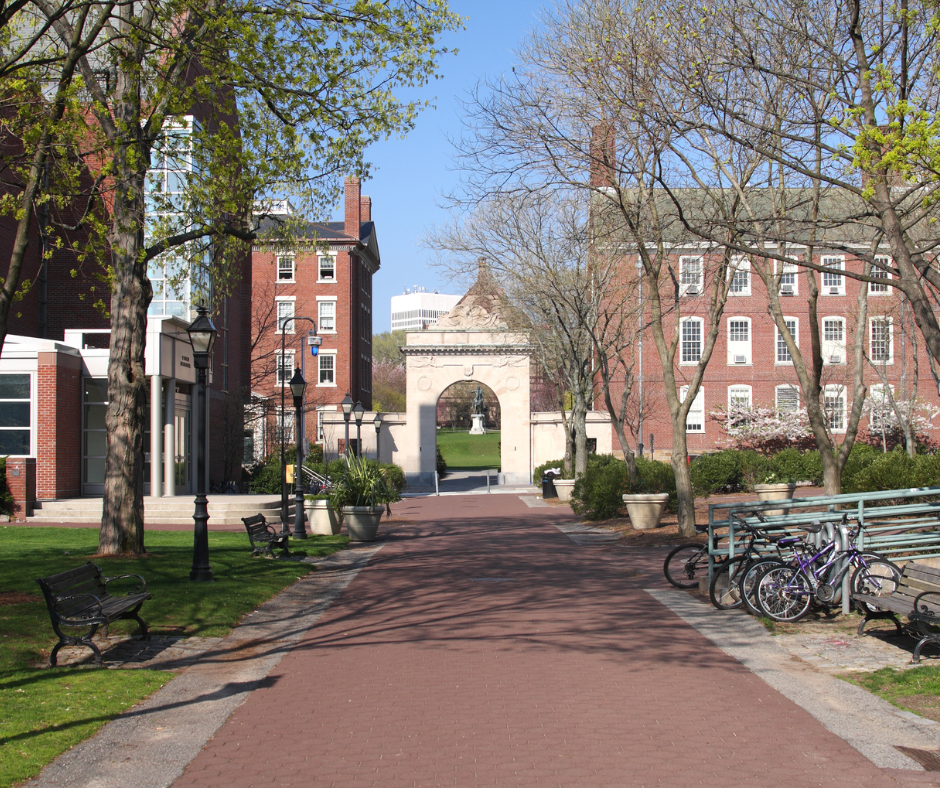
Brown University’s MFA program in Creative Writing is recognized for its innovative approach and strong emphasis on the literary arts. The program encourages experimental and boundary-pushing work, supported by a faculty renowned for their artistic contributions.
Brown’s emphasis on a wide range of literary styles and mediums provides students with a broad and enriching educational experience.
Join us for the focus & Flex challenge
University of Virginia
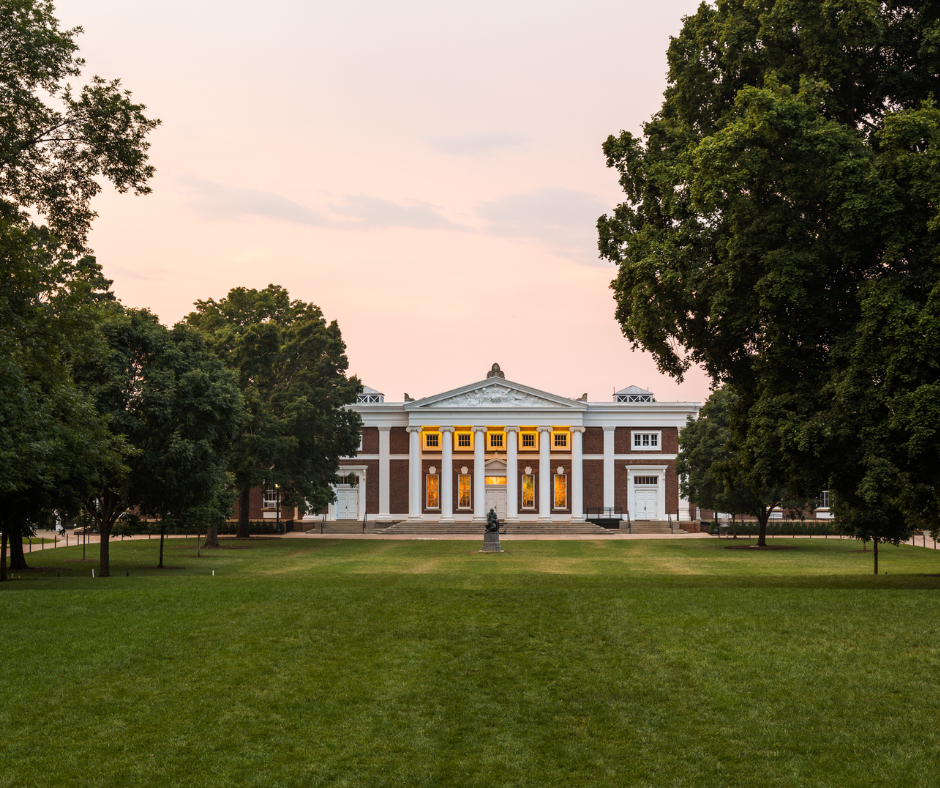
The University of Virginia’s MFA program in Creative Writing boasts a high-quality faculty and a strong alumni network. Known for its selective admissions and intimate class sizes, the program offers personalized attention and mentorship to each student. The alumni success stories speak to the program’s effectiveness in fostering literary talent and career development.
Johns Hopkins University
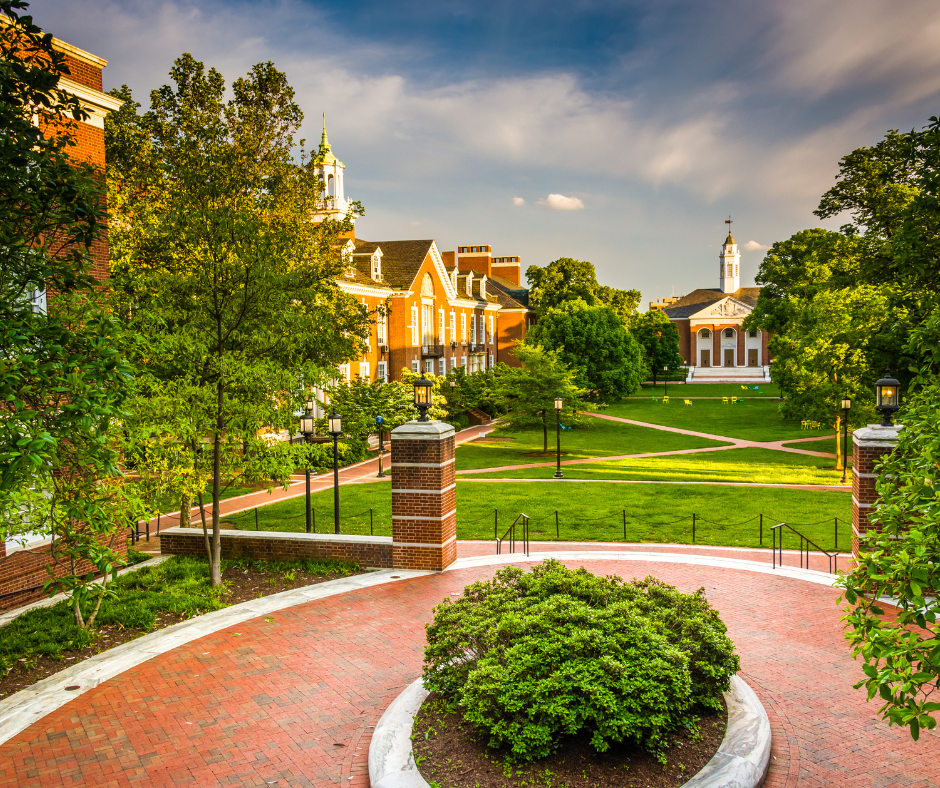
Johns Hopkins University offers a Creative Writing MFA program known for its tight-knit community and focus on craft and theory. The program emphasizes intensive writing workshops coupled with critical analysis, fostering a deep understanding of literary craft. This approach, along with the supportive environment of peers and faculty, makes it an ideal place for writers committed to honing their craft.
Fuel your creative fire, thrive with support from peers, & make 2025 your firm’s best year yet!
JOIN THE DESIGNDASH COMMUNITY

University of California, Irvine
The University of California, Irvine’s MFA program is distinguished by its strong emphasis on both critical skills and creative work. The program blends rigorous writing workshops with a theoretical understanding of the craft, offering a comprehensive approach to literary study. This balance ensures that graduate students are well-equipped both as writers and critical thinkers in the literary field.
Boston University
Boston University’s Creative Writing MFA program is renowned for its intensive one-year curriculum and close mentorship. The program offers a fast-paced, deeply immersive educational experience, with a strong emphasis on completing a substantial body of work. The faculty’s close guidance helps students rapidly develop their skills and prepare for a professional writing career.
Cornell University
Cornell University’s MFA program offers a diverse range of creative writing courses, supported by an experienced and accomplished faculty. The program is designed to cater to a wide array of interests and styles, allowing students to explore various aspects of creative writing. Cornell’s commitment to literary scholarship and creative excellence makes it a nurturing environment for aspiring writers.
University of Massachusetts, Amherst
The University of Massachusetts, Amherst, features a supportive Creative Writing MFA program that focuses on personal growth as a writer. The program is characterized by its welcoming community and emphasis on individual development. Students are encouraged to find their unique voice and explore their creative potential in a nurturing environment.
M. University of Wisconsin, Madison
The University of Wisconsin, Madison, offers a comprehensive Creative Writing MFA program with a vibrant writing community. The curriculum covers a wide range of genres and styles, providing students with a broad understanding of literary forms and practices. The program’s engaged community and comprehensive approach make it an ideal place for writers seeking both breadth and depth in their literary education.
Stanford University
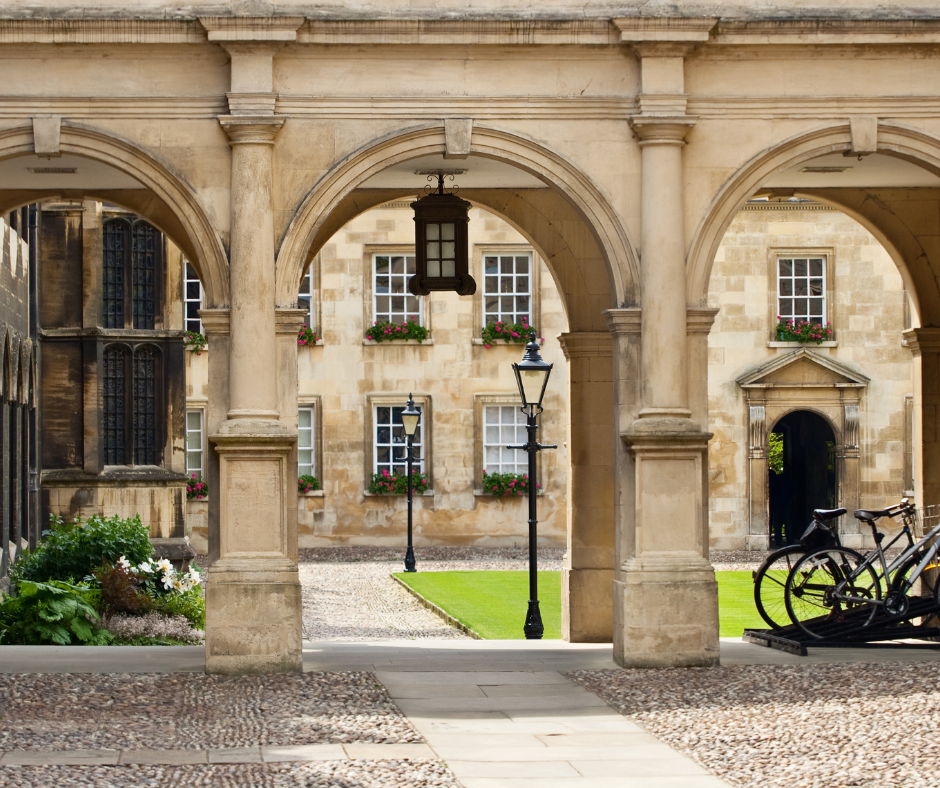
Stanford University’s Creative Writing MFA program is notable for its unique fellowships and focus on creative innovation. The program offers significant financial support and resources, allowing writers to fully immerse themselves in their craft, whether that be fiction, poetry, or another form of creative writing. Stanford’s commitment to creative experimentation and innovation provides an ideal environment for writers looking to push the boundaries of their work.
University of Oregon
The University of Oregon’s MFA program is committed to teaching excellence and provides a supportive learning environment for aspiring writers. The program emphasizes both the artistic and professional aspects of writing, preparing students for a career in the literary world. With a focus on mentorship and development, the University of Oregon offers a nurturing space for writers to grow and succeed.
Other MFA Creative Writing Programs in the United States

Below is a selection of additional notable programs to give creative writing students a broader sense of the options available. Keep in mind this is not exhaustive but includes a range of well-regarded programs.
Syracuse University
Syracuse University’s MFA in Creative Writing is renowned for its rigorous, supportive atmosphere and a strong emphasis on teaching. The program is celebrated for its distinguished faculty and has produced a number of successful writers, such as George Saunders, a recipient of the MacArthur Fellowship and author of several acclaimed books, including “Lincoln in the Bardo.”
Vanderbilt University
Vanderbilt’s MFA program is known for its selective nature and intimate workshop environment, focusing primarily on literary fiction. Alumni include Beth Bachmann, a poet whose work has received significant recognition, including the Kate Tufts Discovery Award for her book “Temper.”
University of Pittsburgh
The MFA program at the University of Pittsburgh offers a balance of creative writing and academic study. Among its alumni is poet Terrance Hayes, a National Book Award winner and MacArthur Fellow, known for his innovative use of language and exploration of identity.
University of North Carolina at Greensboro
UNCG’s MFA program is notable for its strong faculty-student relationships and emphasis on personal growth. Notable alumni include Craig Nova, an award-winning author known for his novels, including “The Good Son.”
University of Florida
The University of Florida’s MFA program emphasizes a balance between creative writing and critical analysis. Alumni include Padgett Powell, known for his novel “Edisto,” which was nominated for the American Book Award.
Indiana University
Indiana University’s MFA program is celebrated for its nurturing environment and community of writers. Notable alumni include poet Ross Gay, whose book “Catalog of Unabashed Gratitude” won the National Book Critics Circle Award.
University of Maryland
The MFA program at the University of Maryland offers a diverse range of courses and workshops. Notably, it has produced alumni like Michael Collier, a poet and former director of the Bread Loaf Writers’ Conference.
University of Alabama
The University of Alabama’s MFA program is diverse in its genre offerings, from traditional literary forms to experimental writing. Its alumni include Alina Stefanescu, a Romanian-American poet and author noted for her unique prose style.
Temple University
Temple University’s MFA program is distinctive for its interdisciplinary opportunities, allowing students to engage with various forms of writing and media. A notable alumnus is Liz Moore, author of the acclaimed novel “Heft.”
University of Arizona
The University of Arizona’s MFA program is known for its strong faculty and commitment to student development. Alumni include Ander Monson, a versatile writer known for his essays, poetry, and fiction.
George Mason University
George Mason University’s MFA program offers a well-rounded approach with a diverse faculty. Notable alumni include Jennifer Atkinson, a poet whose work has been widely published and praised.
Louisiana State University
LSU’s MFA program places a strong focus on literary craft and theory. Among its alumni is Moira Crone, a novelist and short story writer recognized for her narrative craftsmanship.
University of Nevada, Las Vegas
UNLV’s MFA program stands out for its international emphasis, offering students a global perspective on literature. Notable alumni include Claire Vaye Watkins, author of “Battleborn,” which received critical acclaim.
Oregon State University
OSU’s MFA program is distinct for its emphasis on community outreach and engagement, preparing students for a career in writing and teaching. Alumni include Marjorie Sandor, an award-winning author known for her short stories and essays.
University of New Hampshire
UNH’s MFA program is recognized for its supportive faculty and commitment to student development. Notable alumni include Tom Barbash, known for his novel “The Last Good Chance.”
Tips for Financing Your Creative Writing Degree

The financial aspect of pursuing a Creative Writing MFA can be significant, with tuition costs varying widely among programs. Many students will require some form of financial aid. Top-tier programs often have higher tuition fees, reflecting their prestigious faculty and comprehensive resources.
However, many of these programs offer a range of scholarships and fellowships to alleviate the financial burden. Scholarships may be merit-based, recognizing exceptional writing talent, while fellowships often provide a stipend for living expenses in addition to tuition waivers.
Some programs, like the Michener Center for Writers at the University of Texas, are known for offering generous funding packages to all students. A few are fully-funded MFA programs. Prospective students should thoroughly research the funding opportunities available at each program to understand the financial commitment required.
Ways to Finance Creative Writing Degrees
Financing an MFA in Creative Writing requires careful planning and exploration of various funding sources. Applicants should start by seeking information on scholarships and fellowships directly from the programs they are interested in, as these can significantly reduce the cost. Additionally, teaching assistantships, where students teach undergraduate classes, can provide a salary and tuition remission.
External scholarships and grants, available through literary organizations and foundations, are also worth exploring. Students should also consider federal and private student loans, though these should be approached cautiously due to the long-term financial commitment they entail. Lastly, maintaining part-time employment or freelance writing during the program can offer financial support and practical experience in the field.
Career Prospects After Graduation

Graduates of Creative Writing MFA programs have a diverse array of career paths available to them, reflecting the versatile skills they acquire during their studies. Many pursue traditional literary careers as novelists, poets, or short story writers, often securing book deals and publishing contracts.
Others find success in related fields such as journalism, publishing, and editing, leveraging their strong writing and critical thinking skills. The digital age has expanded opportunities in content creation, copywriting, and writing for online platforms. Additionally, an MFA degree can lead to academic careers, with graduates taking up roles as educators and professors in universities and colleges.
The broad skill set developed in MFA programs also enables graduates to work in fields like public relations, advertising, and communications, where effective writing and storytelling are highly valued.
Success Stories of Alumni in Various Writing and Academic Fields
The success stories of MFA alumni highlight the potential for diverse and fulfilling careers in writing and academia. Numerous alumni have achieved critical and commercial success as authors, with their works published by prestigious publishing houses and translated into multiple languages.
For instance, alumni from programs like the Iowa Writers’ Workshop and Columbia University have gone on to win major literary awards, including the Pulitzer Prize and the National Book Award. In the academic realm, many MFA graduates hold faculty positions at universities, contributing to literary scholarship and nurturing the next generation of writers.
Success is also evident in the digital space, with graduates excelling as content creators, bloggers, and digital marketing professionals.
Admission Requirements and Tips

Admission to Creative Writing MFA programs typically involves several key components. Foremost are writing samples, which are the most critical part of the application. These samples, either in the form of poetry, fiction, or non-fiction, should showcase the applicant’s unique voice and skill. Letters of recommendation are also required, generally from individuals familiar with the applicant’s writing and academic abilities, like former professors or mentors.
A statement of purpose or personal essay is another crucial element, where applicants articulate their reasons for pursuing an MFA, their literary influences, and their career aspirations. Additionally, most programs require transcripts from previous academic institutions to assess the applicant’s academic background. Some programs may also request a resume or CV, highlighting relevant experiences and achievements.
If you are pursuing a terminal degree in creative writing, you might need to provide further information.
Fuel your creative fire & be a part of a supportive community that values how you love to live.
subscribe to our newsletter
*please check your Spam folder for the latest DesignDash Magazine
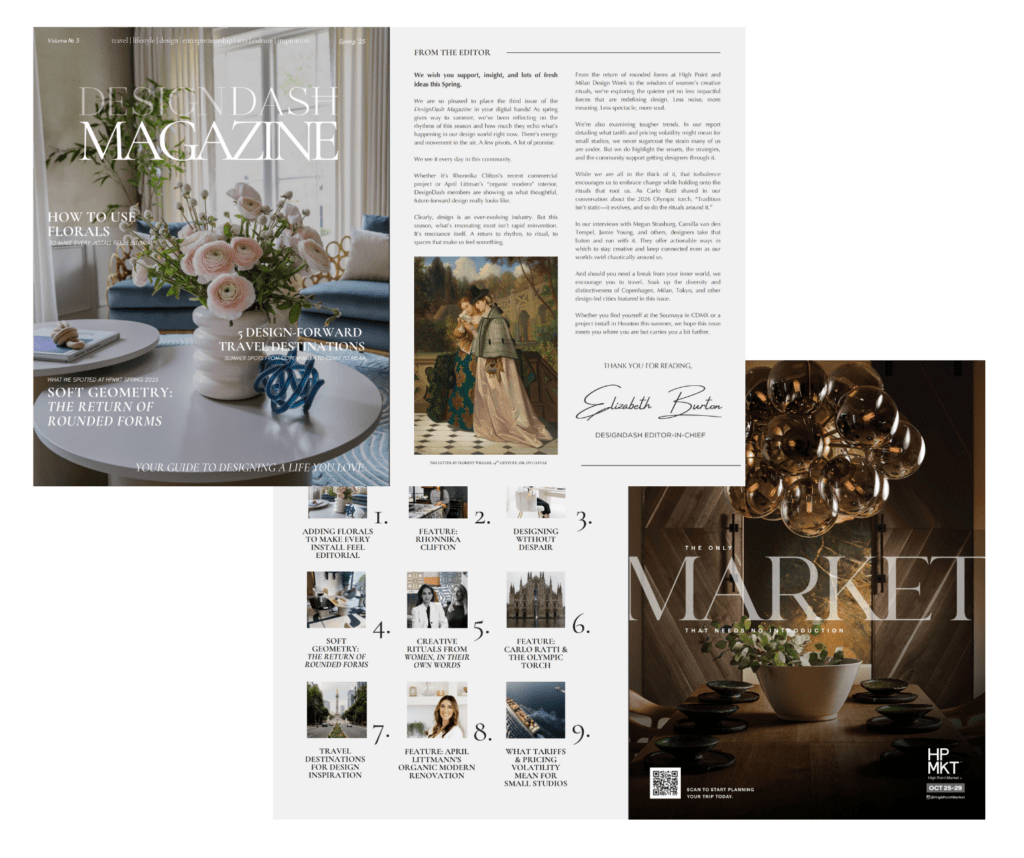
Advice on How to Prepare a Strong Application
To prepare a strong application for a Creative Writing MFA program, candidates should focus foremost on their writing samples. These should be carefully selected and refined to reflect the applicant’s best work, showcasing originality, technical skill, and a clear artistic vision.
Letters of recommendation should come from individuals who can speak to the candidate’s potential as a writer and commitment to the craft. The statement of purpose needs to be well-crafted and thoughtful, clearly conveying the applicant’s goals and reasons for choosing the specific program. It’s beneficial for candidates to familiarize themselves with the faculty and ethos of the program to tailor their application accordingly.
Lastly, applicants should ensure all components of their application, including transcripts and resumes, are complete, accurate, and presented professionally, adhering to each program’s specific requirements and deadlines.
The Future of MFA Programs

The landscape of creative writing education, particularly within MFA programs, is continually evolving with emerging trends that reflect broader cultural and technological shifts. A notable trend is the increasing emphasis on diverse voices and global perspectives in writing, encouraging inclusivity and representation in literary works.
Additionally, there is a growing focus on interdisciplinary approaches, where students explore the intersection of writing with other art forms like digital media, film, and visual arts. Environmental and social justice themes are also becoming more prevalent, as writers engage with pressing contemporary issues. Furthermore, the rise of genre fiction, such as fantasy and science fiction, marks a departure from traditional literary norms, expanding the scope of creative exploration within these programs.
Impact of Digital Media and Online Learning Platforms on MFA Programs
Digital media and online learning platforms are significantly impacting MFA programs, transforming how writing is taught, shared, and published. Online platforms have made MFA programs more accessible, allowing for a broader range of participants, including those who may not be able to attend in-person due to geographical or financial constraints.
These platforms facilitate a more collaborative and interactive learning environment where students can easily share work and receive feedback. The rise of digital media also encourages writers to explore new forms of storytelling, such as interactive fiction and digital narratives. However, this shift poses challenges, including the need to adapt teaching methods for the digital realm and ensuring that the depth and quality of mentorship and peer interaction are maintained in an online setting.
Final Thoughts on Attending Graduate School for Creative Writing

Pursuing an MFA in Creative Writing in the U.S. presents a unique opportunity for individuals to refine their writing craft, connect with a community of like-minded peers, and launch a successful career in the literary world. The value of these programs extends beyond technical skill development. They serve as incubators for creativity, thought leadership, and cultural contribution.
Written by the DesignDash Editorial Team
Our contributors include experienced designers, firm owners, design writers, and other industry professionals. If you’re interested in submitting your work or collaborating, please reach out to our Editor-in-Chief at editor@designdash.com.
Design Dash
Join us in designing a life you love.
How Do I Keep Loving Design When 80% of My Job Is Running the Business?
Running a design firm doesn’t have to mean losing touch with design itself. Learn practical ways to protect your creative energy.
Does My Interior Design Firm Need to Niche Down to Scale?
Should your design firm niche down or stay full service? Explore the pros and cons of both, plus a smarter third option.
What’s the Best Way to Collect Google Reviews for My Interior Design Firm Without Bugging Clients?
Stop dreading the “ask.” Learn how interior design firms can collect meaningful Google reviews without feeling pushy.
What’s the Easiest Way to Track Billable Hours in a Small Design Firm?
Time tracking doesn’t have to be tedious. Simplify the process by managing your team, using cloud tools, and connecting hours directly to invoices.
Beyond the Studio: Art Practices That Strengthen a Design Firm
Art practices beyond interior design can sharpen creativity, build cognitive flexibility, and strengthen leadership for design firm owners.
Creative Rituals from Our “Women, In Their Own Words” Interviews
The “Women, In Their Own Words” interviews reveal how deeply personal practices help designers cultivate focus and connect with their purpose.
2 Comments
Comments are closed.







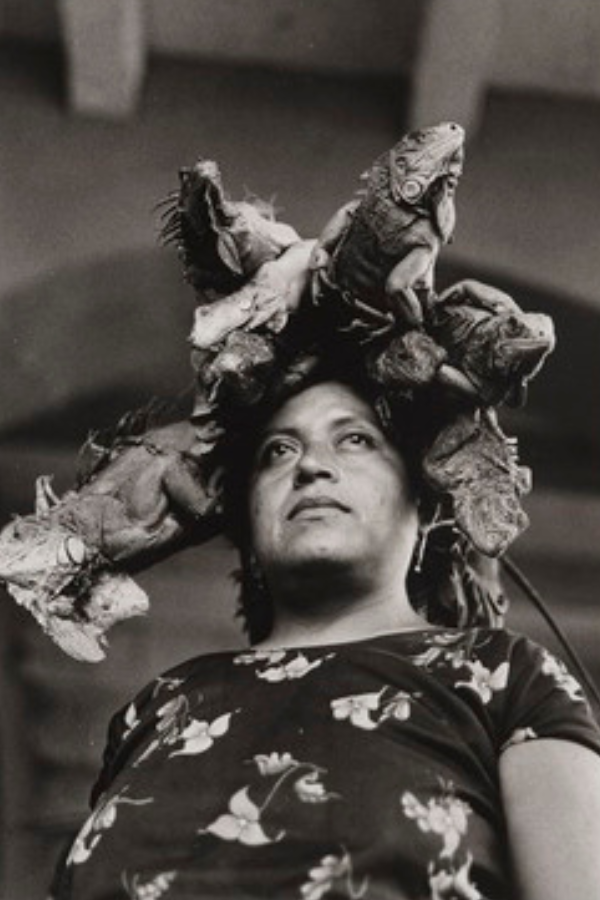

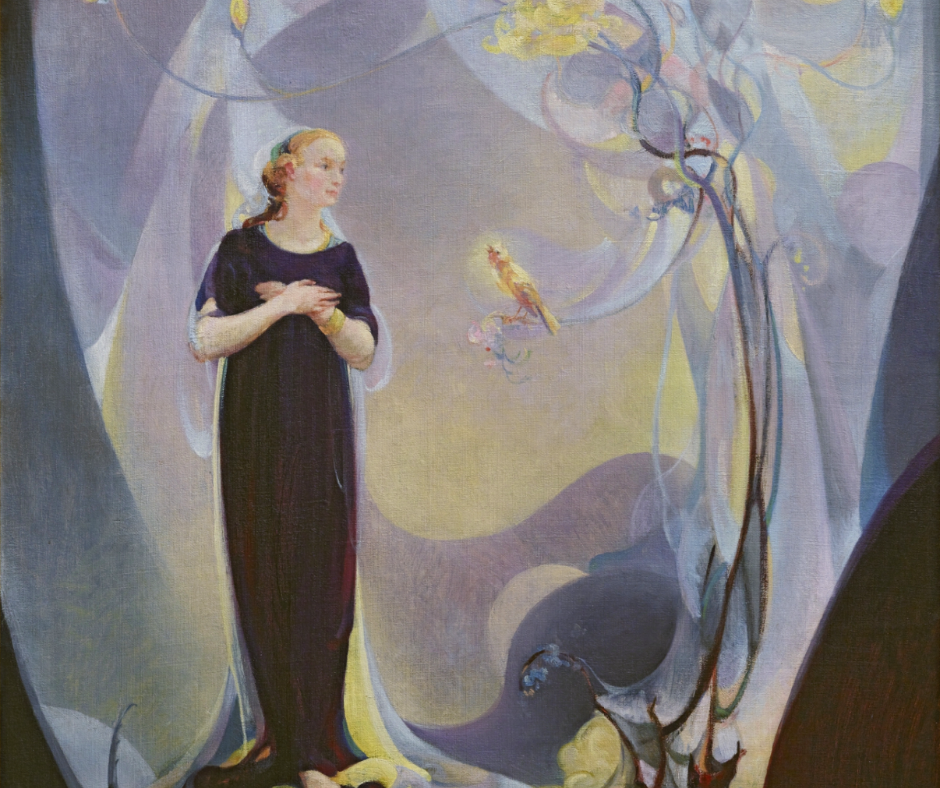
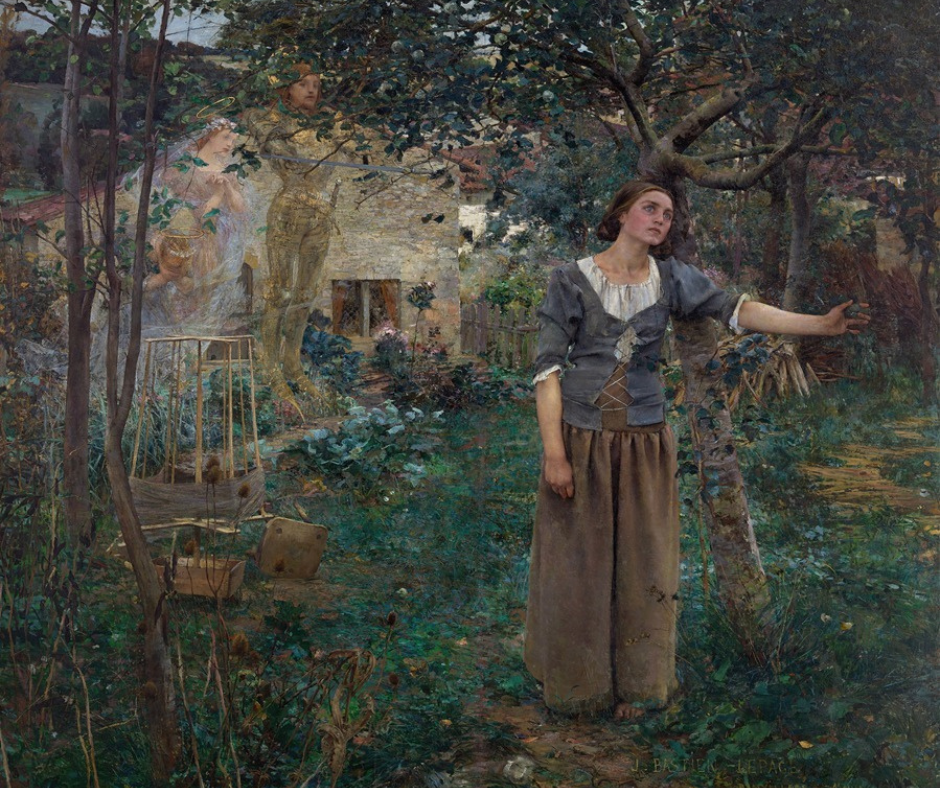
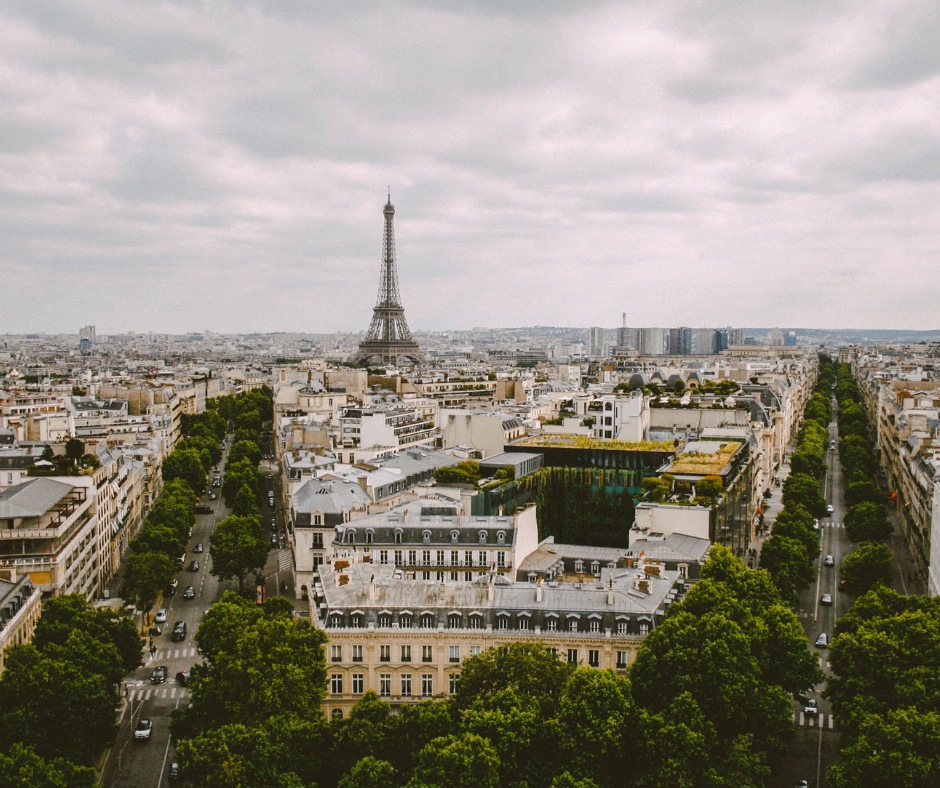
Dee Dee Vogt
I found this article timely and enlightening. I will be entering an MFA Creative Writing program at Belmont University in Nashville in 2024 and the article opened my mind about ways in which I might maximize the experience. Thank you for the inspiration!